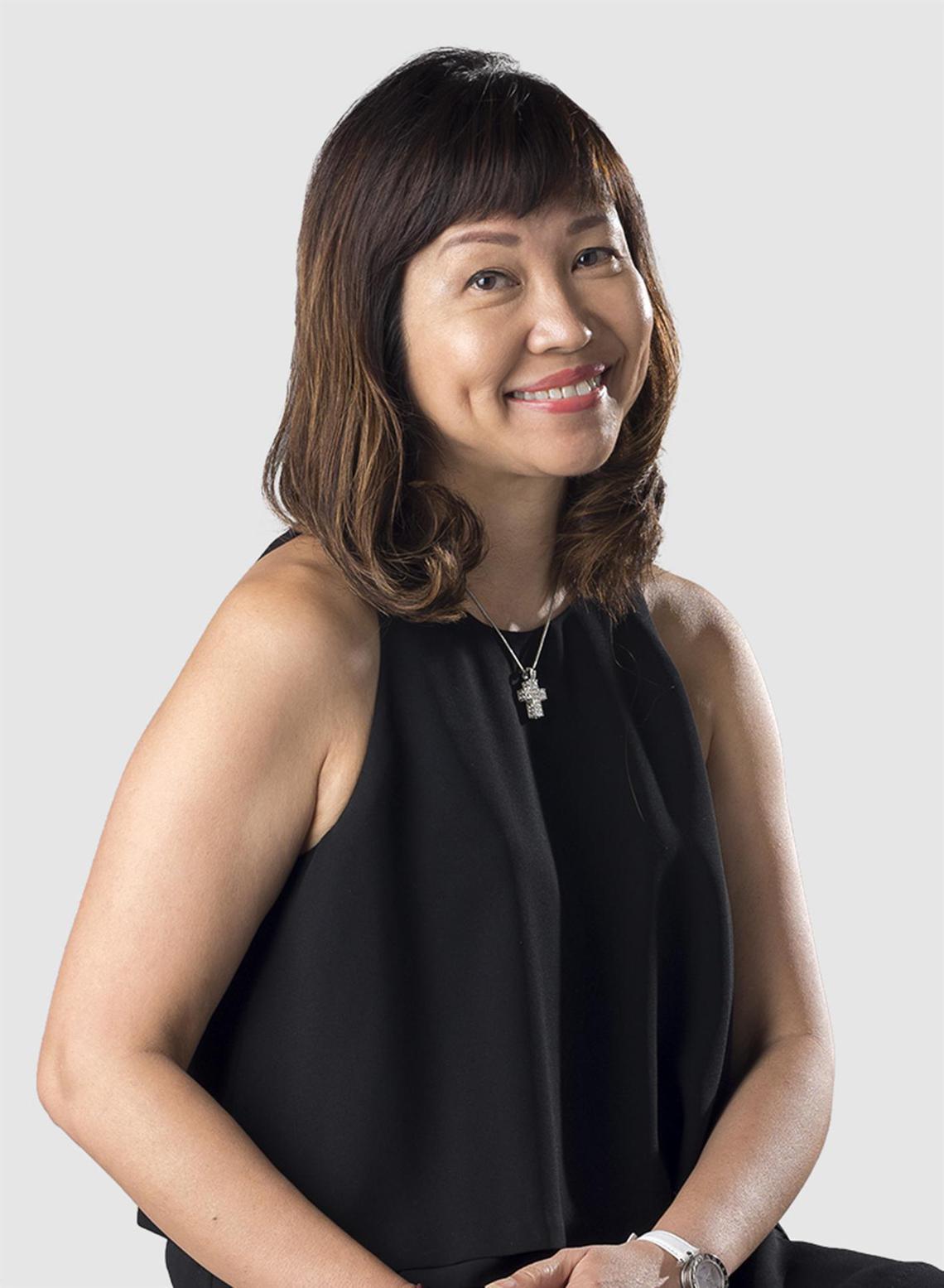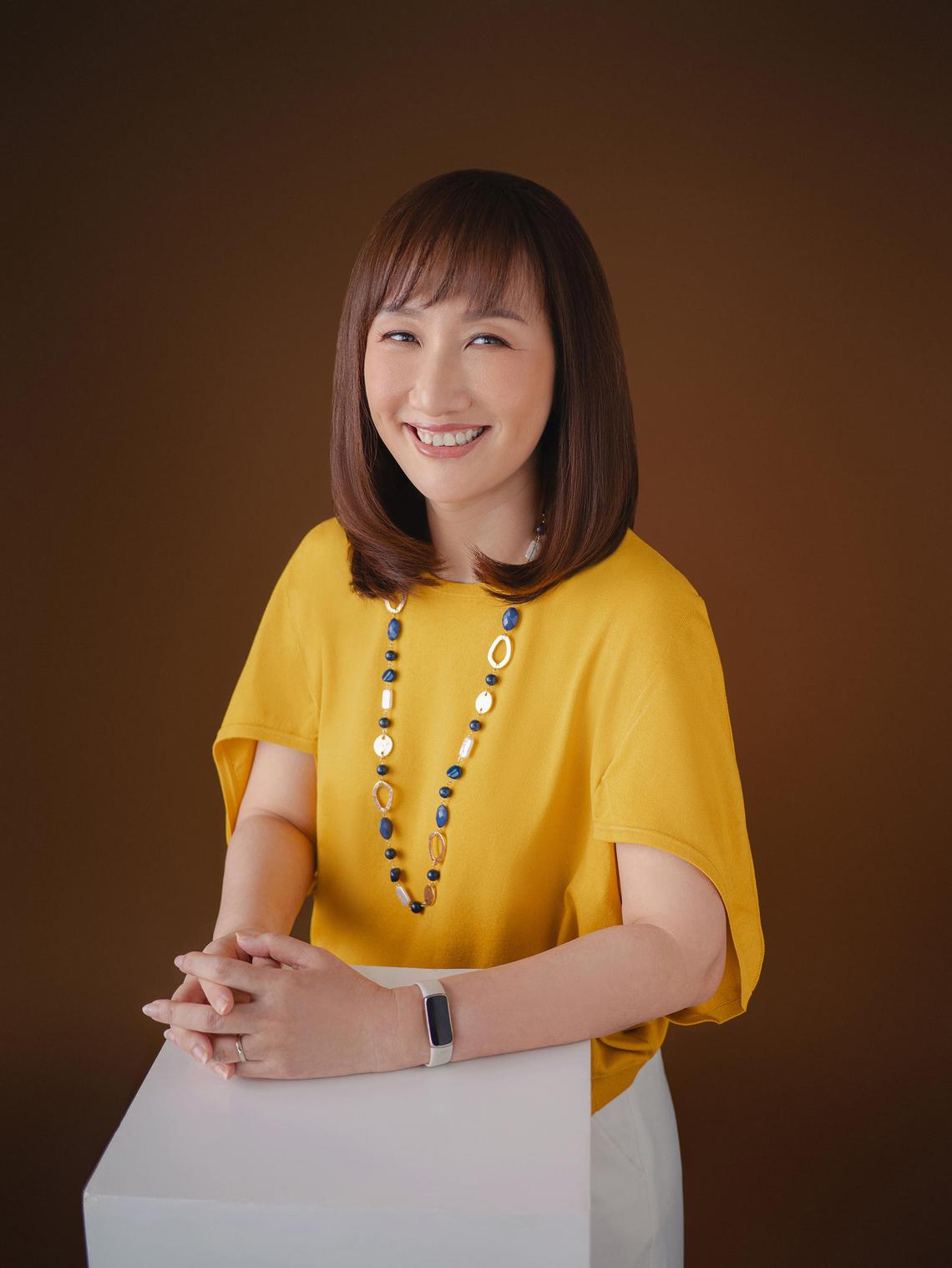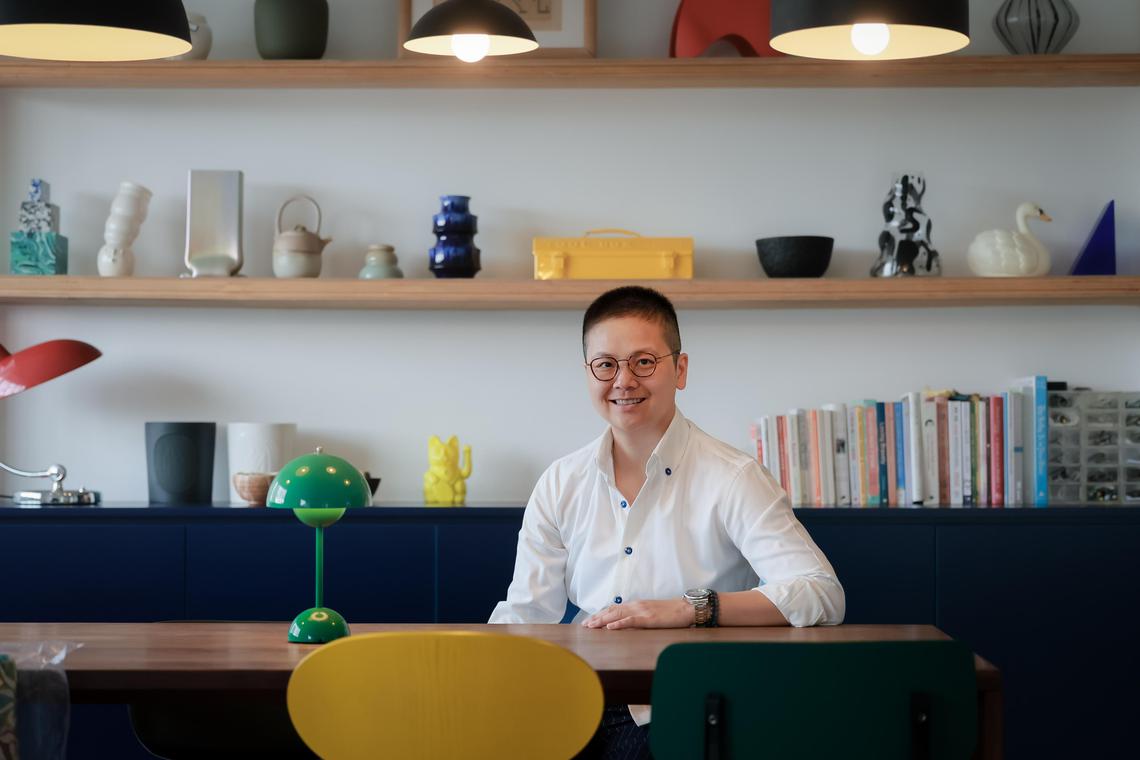SINGAPORE – When Ms Sheryl Koh divorced her husband in 2019 and moved out of her parents-in-law’s home, the financial impact of her decision hit hard.
She had to find a rental home quickly for her and her toddler. “Even though I had emergency savings, it wasn’t enough to cover more than a few months’ rent,” recalls Ms Koh, 36, whose daughter was about one year old at the time. She was then working in marketing for insurance company Manulife Singapore.
“It was a wake-up call. For years, I had relied on someone else to handle the finances and hadn’t thought much about saving more. Suddenly, I had to take full responsibility.”
Growing up, the business marketing graduate from RMIT University via SIM University was taught that money would come from studying hard and getting good grades.
“We were taught to save for emergencies, though we never really knew how much was ‘enough’. Beyond that, money was rarely talked about. It was almost taboo,” says Ms Koh, who has two younger siblings in their 30s.
Her father, who is in his 70s, ran a business in the plastics engineering trade, and her mother, in her 60s, is a homemaker.
The $600 to $800 a month she earned from various part-time jobs after secondary school went into her allowance and to help with her family’s expenses.
“I often felt like money was never enough. Whatever I earned, I spent. There were deep fears of not having enough, of debt and of being judged. I wanted to do better, but didn’t know how,” recalls Ms Koh.
As she had parted on amicable terms with her former husband, he helped her cover the rent for her two-bedroom condominium unit during the transition for a few months.
She started cost-cutting, cancelling gym memberships and other non-essential subscriptions, as well as forgoing luxury shopping and fancy meals.
“That experience pushed me to become financially independent, not just for myself, but also for my child,” says Ms Koh, who became a financial services consultant in 2021 with Aspire Alliance – Andy Chen, an agency branch under Manulife Financial Advisers. The role also gave her flexible work arrangements so she could care for her daughter.
Like her, many Singapore women still grapple with financial literacy and fears surrounding issues like investing.
A regional survey by financial advisory firm Sun Life released in February 2025 found that 63 per cent of women in Singapore rate their financial knowledge at the beginner level. This is higher than the regional average of 59 per cent.
The survey, titled Women’s Wealth: Building Confidence And Security, polled over 3,000 women across six Asian territories such as Hong Kong, Indonesia, the Philippines, Malaysia and Vietnam. About 500 respondents were from Singapore.
While women here are familiar with topics like credit card debt and current interest rates, four in 10 could not estimate their mortgage balances. Over half did not know the average annual return on their investments.
Structural barriers such as lack of financial education and limited access to investment opportunities are the main stumbling blocks here.
“Despite growing female participation in the workforce, caregiving responsibilities continue to constrain many women’s time and resources,” says a Sun Life spokesperson.

Ms Lorna Tan, head of financial planning literacy at DBS Bank, says women may face analysis paralysis when investing because of their multiple responsibilities and lack of time.
PHOTO: DBS BANK
Ms Lorna Tan, head of financial planning literacy at DBS Bank, says such caregiving duties could lead some women to become more conservative financially and choose long-term savings over taking risks to invest.
“As a caregiver facing the daily stress of managing the household, caring for children and parents as well as holding a full-time job, there may be little time left for these women to understand investing before acting, leading to analysis paralysis,” she adds.
“Financial advice can seem dense, jargon-filled and not tailored to women’s life stages or financial goals, which can often include career breaks, differing income trajectories and caregiving responsibilities.”
Indeed, money is such a loaded topic that it is one of the most common issues couples bring into counselling, says Ms Theresa Pong, founder and counselling director of The Relationship Room, a private counselling practice.

Money is one of the most common issues couples bring to counselling, says Ms Theresa Pong, founder and counselling director of The Relationship Room, a private counselling practice.
PHOTO: COURTESY OF THERESA PONG
Conflicts often surface around major life decisions like buying a home, budgeting for renovations, having kids and even deciding on enrichment programmes for children, she notes.
“On the surface, these look like financial disagreements, but beneath them lie deeper marital choices. Essentially, couples are negotiating what security means to them, the life experiences they want to prioritise and how they envision their shared future,” she says.
“Money, in this sense, represents trust, values and connection.”
When one partner takes full control of the family’s finances, it may come from a place of good intentions, such as convenience. Over time, though, this can create a “perceived imbalance”, and she has seen many wives feel helpless when their husbands make most of their joint financial decisions.
Ms Ten Hui Yu, an associate director at financial advisory firm Finexis Advisory, says this is a common scenario among the mainly female clients she services.
Single women tend to either seek instant gratification with their salary or are unbothered by money matters, especially if their parents do not need financial assistance.
As for married women, she notes that most tend to say: “I let my husband take care of the financial matters. He seems to know what he’s doing. I take care of the children.”
But if the relationship sours, some women can find themselves in a fix.
Ms Ten recounts a 50-something client in a senior role who wanted to divorce her husband, but found herself stuck because all her money was in an account in his name.
Ms Pong says: “From a relational perspective, shared visibility and participation in financial decisions are important for building trust and security. When a partner lacks financial literacy or involvement, it can leave him or her vulnerable, especially when the relationship ends. More importantly, it can also affect the couple’s sense of teamwork.”

For years, Ms Ten Hui Yu feared that money would run out after witnessing how her father won and gambled away $1 million.
ST PHOTO: GAVIN FOO
Ms Ten, 42, has seen first-hand how money can strain family ties. She was about 10 years old when her father, a spare parts salesman, won $1 million in the Singapore Sweep lottery.
While her mother, a supermarket promoter, wanted him to start a business with the winnings, he started gambling and eventually got into debt, borrowing money from relatives and via credit cards. It led to arguments, adding to the tension at home.
“A scarcity mindset set in for me then. There was a background track running through my mind that money would run out, so I leaned into the other extreme, which was to hoard money in my savings account,” she says.
It was only after a talk with a financial adviser friend, following the 2008 financial crisis, that the Nanyang Academy of Fine Arts degree holder in arts management realised the crisis was a financial opportunity, although she did not know how to capitalise on it then. That sparked her career transition from a programming officer in the arts industry to a financial planner in 2009.
That move proved fortuitous since she topped up her insurance policies after learning about adequate coverage. The policies covered private healthcare when she was struck by stage 3 ovarian cancer in 2023, and the six-figure payout from her critical illness plan also allowed her to take a break for a few months without worrying about loss of income, she says.
In a super-ageing society where women outlive men by almost 4½ years – the average lifespan of women in Singapore is 85.6 years, compared with 81.2 years for men – closing the financial health gender gap is more important than many women realise.
“The widening financial health gender gap poses significant long-term repercussions across individual, societal and economic levels. This isn’t just about personal wealth, but it also impacts their healthcare options, quality of life and overall well-being,” Ms Tan says.
One key challenge for women is reduced financial security during their retirement years.
“With lower lifetime earnings, fewer accumulated assets and often less robust retirement savings (due to career breaks, part-time work and the gender pay gap), women are at a significantly higher risk of poverty in their later years. Their longer lifespan means these insufficient resources must stretch further,” she says.
Singapore women’s median income was 14.3 per cent less than men’s in 2023, according to Ministry of Manpower data published in 2024.
Financially vulnerable women also tend to need to tap public assistance programmes in their old age, which they may have limited access to because of means testing, or they hope – sometimes in vain – that their adult children will support them, Ms Tan says.
Sun Life’s survey showed that 60 per cent of women are actively saving for their parents’ care, but only 12 per cent expect their own children to fully support their needs later in life.
“This suggests that women may continue to shoulder caregiving costs even as they age, stretching their resources thinner and potentially delaying retirement,” the spokesperson adds.
Without a sufficient nest egg, women face limited autonomy too.
“A lack of financial independence restricts women’s choices in all aspects of life, from where they live to how they spend their time to healthcare options, impacting their ability to prioritise their health, pursue their interests or maintain independence,” Ms Tan says.
Investing is crucial for women to avoid outliving their financial resources, Ms Tan says. They are good savers, but often invest less and more conservatively than men.
“This caution may stem from a perceived need for financial security due to potential career breaks for childbirth or caregiving, leading to lower lifetime earnings. Consequently, women tend to hold more assets in cash, which, while offering immediate security, is eroded by inflation, negatively impacting retirement adequacy,” she says.
Starting small and celebrating every win helps build confidence. Ms Tan suggests setting up an automated savings plan, investing a modest amount in a diversified fund or tracking expenses as a start.
After her divorce at age 30, Ms Koh did just that, saving $1,000 a month towards a target of $12,000 a year.
“I reached it a little ahead of schedule, which gave me confidence. That money went into my first investments – a mix of stocks and crypto. Later, I diversified into dividend-paying assets to grow passive income,” she says.
She learnt to use the 50/30/20 rule of money management, spending 50 per cent of her income on her and her daughter’s needs, 30 per cent on wants and 20 per cent on savings and investments.
She also subscribes to social media accounts and podcasts such as Friends That Invest, Your Rich BFF and The Diary Of A CEO to pick up investing tips.
While some women may feel their spouse is better at managing money, they should still take responsibility for their financial wellness, Ms Tan says. That means discussing how he is investing their savings, as well as familiarising themselves with the family’s insurance plans, Central Provident Fund nominations, wills and estate planning.
Such conversations should go beyond just talking about rates of return and profits or losses, Ms Pong says.
“In a healthy marriage, it is crucial to have regular money conversations with each other – not just about numbers, but also about values and goals: what security means to each partner and the kind of life they hope to create together,” she says.
While Ms Koh was financially passive in her previous marriage, she now shares a joint savings account with her second husband, a 39-year-old regional strategist in a tech firm whom she married in 2022. Their fixed monthly contributions pay for the family’s expenses, holidays, and education for her daughter, now aged eight, and their son, who is three.
Individually, they have a diversified portfolio of income sources, including dividend-generating investments, commercial properties that yield rent and capital gains, and exchange-traded funds where they practise dollar cost averaging.
“I like that we can discuss this openly and share new ideas with each other. We are transparent with our finances and that makes me more assured about our future,” she says.
“Financial freedom is the new flex. Women today aren’t just chasing wealth. We’re chasing options – the ability to afford what we want, retire earlier and live life on our own terms.”
